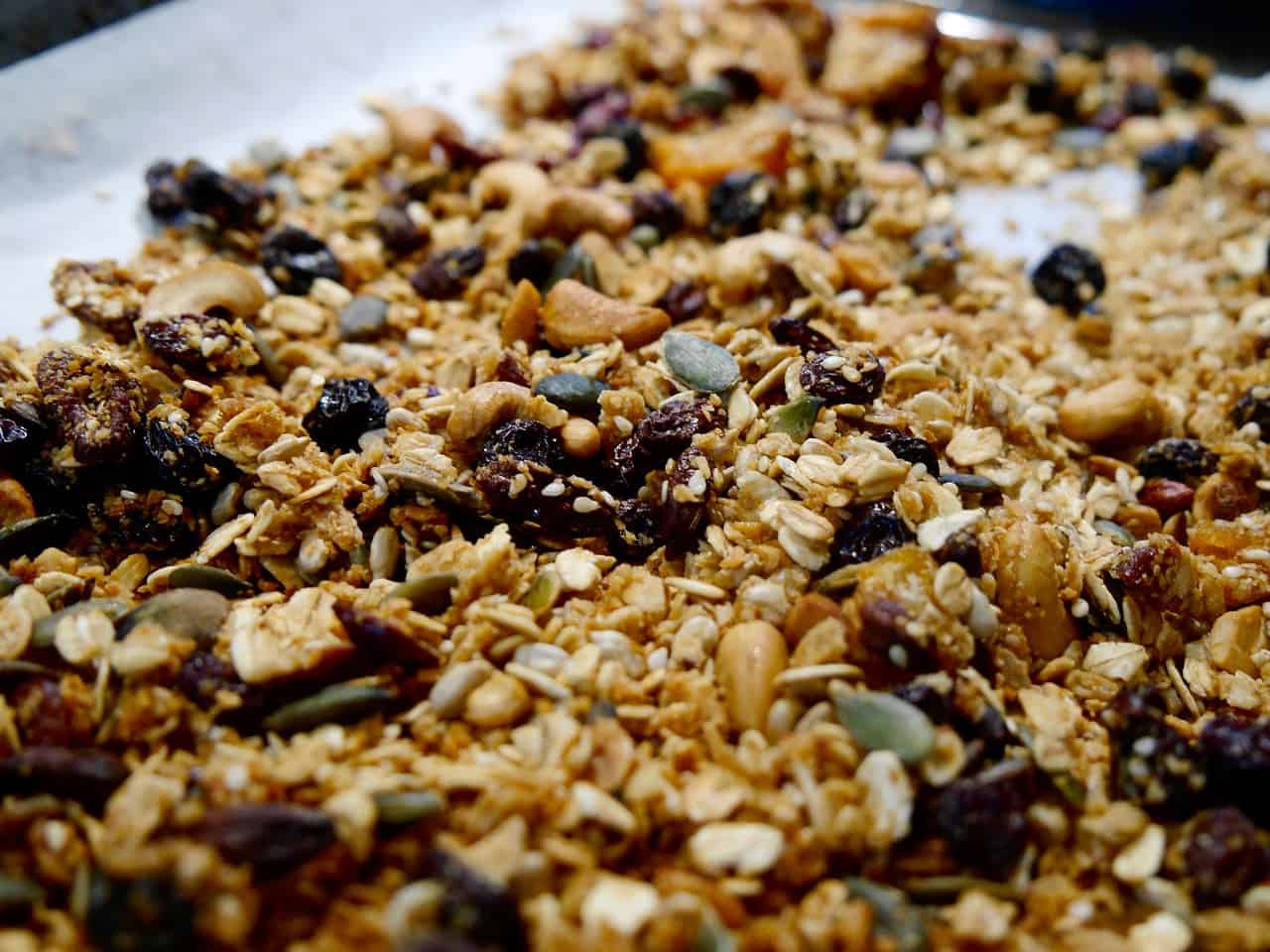
Image Source intoyard.com
Introduction
When it comes to feeding our feathered friends, it’s important to provide them with a well-balanced diet that meets their nutritional needs. Many bird owners wonder if it’s safe to include granola in their pet’s diet. In this article, we will explore whether birds can eat granola, the potential benefits and risks, as well as alternative options that may be more suitable for their health.
Granola, a popular breakfast and snack food among humans, typically consists of rolled oats, nuts, dried fruits, and sweeteners. While it may be a nutritious choice for us, it’s crucial to consider the specific dietary requirements of birds before sharing our granola with them.
Before delving into the details, it’s important to remember that each bird species has unique dietary needs, and what works for one may not work for another. Consulting with a avian veterinarian is always recommended before introducing any new food into your bird’s diet.
Can Birds Safely Consume Granola?
Now, let’s address the burning question – can birds eat granola? The short answer is, it depends. While some ingredients in granola, such as oats and unsalted nuts, can be beneficial for birds, others may pose potential risks to their health.
The Pros of Granola for Birds
Granola typically contains oats, which are a good source of fiber, vitamins, and minerals. Birds can benefit from the nutritional content of oats, as they provide essential nutrients that support their overall health and well-being.
In addition to oats, granola often includes unsalted nuts, such as almonds or walnuts. Nuts are a rich source of healthy fats, proteins, and vitamins. However, it’s important to note that not all bird species can safely consume nuts, and some may have allergenic reactions.
Lastly, dried fruits, such as raisins or cranberries, are another common ingredient found in granola. While birds may enjoy the sweetness and chewy texture, it’s vital to offer these in moderation. Some dried fruits may contain high levels of sugar or artificial additives, which can be harmful to birds if consumed in excessive amounts.
The Cons of Granola for Birds
Despite the potential benefits, there are also several reasons why granola may not be the best choice for birds. One of the main concerns is the high sugar content often present in commercial granola products. Birds have no dietary need for added sugars and excessive consumption can lead to obesity, diabetes, or other health issues.
Moreover, granola may contain seasonings, such as cinnamon or vanilla extract, that can be harmful or irritating to birds’ digestive systems. Artificial sweeteners, like xylitol, are also toxic to birds, so it’s important to avoid granola products that contain these substances.
Furthermore, some granola varieties may include chocolate or caffeine, both of which are toxic to birds and should never be offered to them under any circumstances. Even small amounts of these substances can have severe adverse effects on their health.
Alternative Options for Bird-Friendly Nutrition
If you’re looking for healthier alternatives to granola that can be safely enjoyed by your feathered companion, there are several options to consider:
1. Bird Seed Mix
A high-quality bird seed mix specifically formulated for your bird’s species is an excellent choice. Look for varieties that include a diverse range of seeds, such as sunflower seeds, millet, and safflower seeds. These mixes are designed to provide the necessary nutrients and energy required for birds to thrive.
2. Fresh Fruits and Vegetables
Introducing fresh fruits and vegetables into your bird’s diet can be highly beneficial. Offer a colorful array of fruits and vegetables, including leafy greens, carrots, berries, and apples. Remember to wash them thoroughly and remove any seeds, pits, or toxins that may be harmful to your bird.
3. Cooked Eggs and Lean Proteins
Another great source of protein for birds is cooked eggs. Birds can consume eggs in moderation, and they provide essential amino acids necessary for optimal health. Lean proteins such as cooked chicken or fish can also be offered as a tasty treat from time to time.
Conclusion
While granola may contain some nutritious ingredients, it is not recommended as a regular part of a bird’s diet. The high sugar content, potential allergens, and toxic substances found in some granola varieties make it a less-than-ideal choice for our feathered friends. Instead, opt for bird seed mixes or fresh fruits and vegetables to provide a well-balanced, nutrient-rich diet.
Remember to always consult with an avian veterinarian before introducing any new foods into your bird’s diet or making significant changes to their existing one. By prioritizing your bird’s health and nutrition, you can ensure a happy and vibrant companion for years to come.